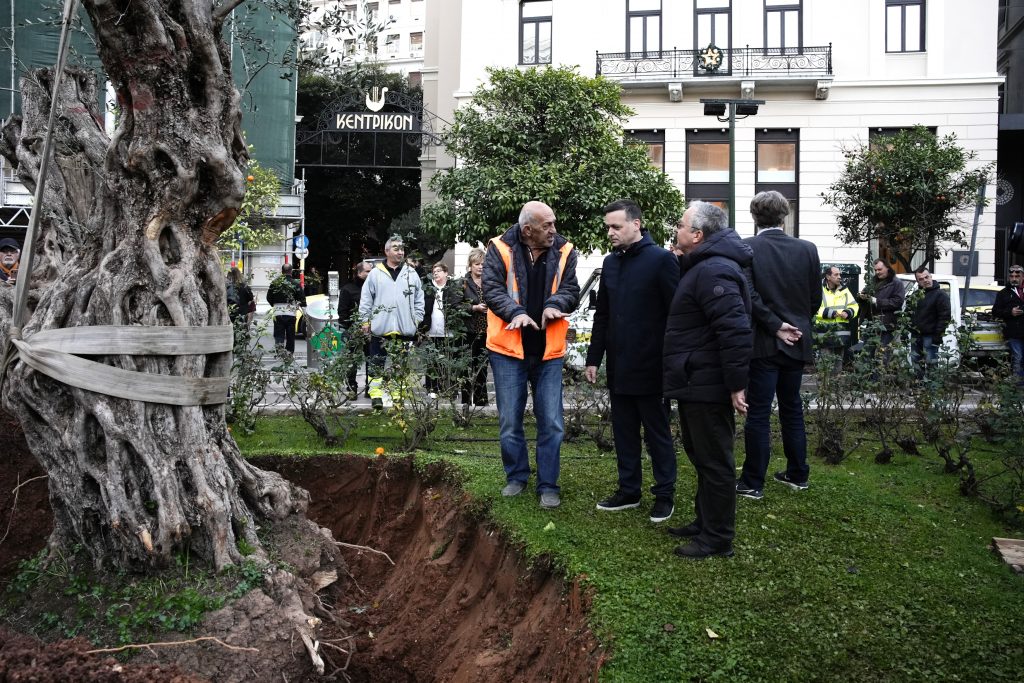A centuries-old olive tree, estimated to be 700 years old, was recently relocated from Aigio, Western Greece, to Athens, as part of an ambitious program to preserve Greece’s natural heritage. The initiative, spearheaded by Ergose and supported by the Municipality of Athens, seeks to rescue ancient trees from properties earmarked for railway development projects.
The tree was replanted in front of the Old Parliament House on Stadiou Street, a historic landmark that served as the Greek Parliament’s home from 1875 to 1935 and now houses the National Historical Museum.

Photo: City of Athens
This relocation coincides with a milestone for the Athens municipal authority, which announced that it had planted more than 5,000 new trees in 2024. Athens Mayor Haris Doukas highlighted the city’s ongoing commitment to making the Greek capital greener. “We will continue dynamically at the same pace in the new year to make our city greener and more resilient,” he said, adding that residents and visitors can track tree-planting efforts in real time on the “Athens Trees” app.
The preservation initiative is part of an ongoing Ergose program designed to save and relocate centuries-old olive trees from expropriated land slated for railway infrastructure projects. In collaboration with public and private sector partners, Ergose aims to protect Greece’s natural and cultural heritage while enhancing urban greenery. Ergose supervises Greece’s railway infrastructure.
The olive tree was sacred to Athena, the Greek goddess of wisdom, warfare, and craftsmanship. According to Greek mythology, Athena offered the olive tree to the city of Athens during a contest with Poseidon. In Greek culture, the tree continues to symbolize peace, prosperity, and resilience.



